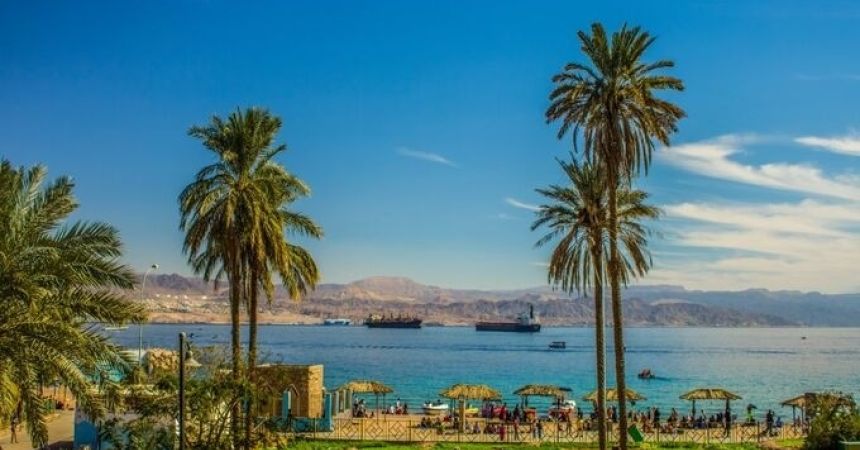
Is Jordan Safe to Travel? Comprehensive Guide for Travelers
Jordan, a country known for its ancient history, breathtaking landscapes, and warm hospitality, is a popular destination for travelers seeking adventure and cultural enrichment. With its iconic sites like Petra, the Dead Sea, and Wadi Rum, Jordan has much to offer. However, safety is a primary concern for many travelers when considering a trip to a new destination. In this comprehensive guide, we’ll explore the safety aspects of traveling to Jordan, addressing common concerns and providing practical tips to ensure a smooth and enjoyable trip.
Overview of Jordan
Jordan, officially known as the Hashemite Kingdom of Jordan, is located in the heart of the Middle East. It shares borders with Israel, Palestine, Syria, Iraq, and Saudi Arabia. The country is known for its rich history, which includes ancient cities, biblical sites, and historical landmarks. It also boasts stunning natural landscapes, from the vast deserts of Wadi Rum to the serene waters of the Dead Sea.
Jordan is considered one of the more stable and tourist-friendly countries in the region. Its government is focused on maintaining security and promoting tourism, making it a popular choice for travelers.
Current Safety Situation
Political Stability
Jordan is relatively stable compared to some of its neighboring countries. The country has experienced political unrest in the past, but the current situation is generally calm. The Jordanian government has a strong commitment to maintaining stability and security, and it works actively to prevent and manage any potential threats.
Regional Context
While Jordan itself is stable, it is situated in a region with complex geopolitical dynamics. Conflicts in neighboring countries, such as Syria and Iraq, can occasionally impact Jordan. However, Jordan’s borders are well-managed, and the government has robust measures in place to address any issues that might arise.
Health and Safety
Health Precautions
Traveling to Jordan requires some basic health precautions, but there are no major health risks specific to the country. Here are some general health tips for travelers:
Vaccinations: Check with your healthcare provider about recommended vaccinations before traveling. Common vaccines for travelers to Jordan include those for hepatitis A, hepatitis B, typhoid, and routine vaccinations like MMR (measles, mumps, rubella).
Food and Water Safety: Jordan is generally safe in terms of food and water, but it’s wise to drink bottled water and avoid consuming raw or undercooked food to prevent foodborne illnesses. Stick to reputable restaurants and avoid street food if you have a sensitive stomach.
Emergency Services: Jordan has a well-established healthcare system with hospitals and clinics in major cities. In case of a medical emergency, you can dial 911 for assistance. It’s also a good idea to have travel insurance that covers medical emergencies.
Weather Conditions
Jordan’s weather can vary significantly depending on the region and time of year. The climate is generally dry, with hot summers and mild winters. It’s important to be prepared for the weather conditions of the area you’ll be visiting:
Summer: Temperatures can reach extremely high levels, especially in desert areas like Wadi Rum. Stay hydrated, wear sun protection, and take breaks in shaded areas.
Winter: While winters are mild in most parts of Jordan, temperatures can drop significantly in the desert and mountainous regions. Pack warm clothing if traveling during the winter months.
Safety Tips for Travelers
General Safety
Jordan is known for its welcoming and hospitable people. However, it’s always wise to follow some basic safety practices:
Respect Local Customs: Jordan is a conservative country with cultural norms that travelers should respect. Dress modestly, especially when visiting religious sites or rural areas. Avoid public displays of affection.
Stay Informed: Keep yourself updated on local news and travel advisories. Register with your embassy or consulate if required.
Transportation
Driving: If you plan to drive in Jordan, ensure you have a valid international driving permit. Traffic rules are enforced, and driving can be chaotic in urban areas. Exercise caution and follow local driving regulations.
Public Transport: Public transportation options include buses and taxis. Use reputable taxi services and agree on fares before starting your journey.
Private Tours: For added convenience and safety, consider booking private tours with established operators. They can provide expert guidance and ensure a hassle-free experience.
Security Checks
Jordan has heightened security measures in place, especially at major tourist sites and public places. Be prepared for security checks at entrances to sites like Petra and the Dead Sea. These measures are designed to ensure visitor safety and should be regarded as a routine procedure.

Crime and Personal Safety
Petty Crime
Petty crime, such as pickpocketing and theft, can occur in tourist areas and crowded places. To avoid becoming a target:
Keep Valuables Secure: Carry only what you need and use a money belt or hidden pouch for valuables.
Be Aware of Your Surroundings: Stay vigilant, especially in busy markets or crowded areas.
Scams
As with many popular tourist destinations, scams can occasionally occur. Be cautious of unsolicited offers or individuals approaching you in tourist areas. Use reputable services and avoid engaging with aggressive sales tactics.
Cultural Sensitivity
Dress Code
Jordan is a conservative country, and modest dress is important. For both men and women:
Wear Modest Clothing: Covering your shoulders and knees is advisable. Women may choose to wear long skirts or pants and long-sleeved tops.
Headscarves: While not mandatory for tourists, women visiting religious sites may choose to wear a headscarf as a sign of respect.
Behavior
Respect Religious Sites: When visiting mosques or other religious sites, remove your shoes and follow any guidelines provided by site staff.
Public Conduct: Avoid public displays of affection, and be mindful of local customs and traditions.
Regional Differences
Urban vs. Rural Areas
Safety conditions can vary between urban and rural areas. In major cities like Amman, safety is generally high, with a strong police presence and modern amenities. In rural areas or smaller towns, the pace of life is more relaxed, but basic safety precautions should still be followed.
Tourist Sites
Popular tourist sites like Petra, Wadi Rum, and the Dead Sea are well-patrolled and receive regular maintenance. Security at these sites is tight to ensure the safety of visitors. However, it’s still important to follow general safety guidelines and be respectful of local customs.
Emergency Contacts
Local Emergency Services
Police: 911
Ambulance: 911
Fire Department: 911
Embassies and Consulates
It’s useful to know the contact details of your country’s embassy or consulate in Jordan:
U.S. Embassy: Amman, Jordan
British Embassy: Amman, Jordan
Canadian Embassy: Amman, Jordan
Travel Jordan: Explore Petra and Beyond
Jordan is a remarkably safe and welcoming destination for travelers. With its rich cultural heritage, stunning landscapes, and warm hospitality, it offers an enriching Jordan travel experience. By staying informed, respecting local customs, and following basic safety guidelines, you can enjoy a memorable and secure trip to this fascinating country.



